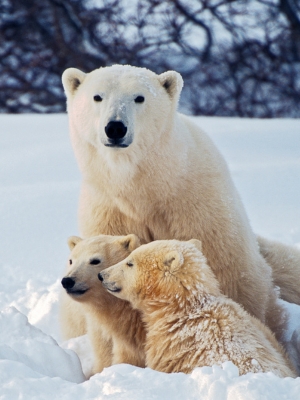Born Free USA works in West and Central Africa to equip law enforcement personnel, customs officers, and others on the front lines of the fight to stop illegal wildlife trade with the tools, knowledge, and resources they need. These efforts are paying off in the form of large wildlife product seizures and the arrests of traffickers. The latest victory comes from Burkina Faso, where officials discovered and confiscated 14 elephant tusks earlier this month.
On the morning of May 11, the mobile customs brigade in Ouagadougou received information about a possible case of wildlife trafficking involving elephant ivory. The team organized a plan to ambush the traffickers, leading to an arrest at around 5:00 PM the same day. The confiscated tusks weigh 60 lb. (28 kg.) and come from seven African elephants, a species listed under CITES. The tusks’ value is estimated to be $33,000 USD (17,550,000 CFA Francs).
Along with customs officials from Mali and Niger, Burkina Faso customs officers were trained in November 2020, during Born Free USA’s virtual train-the-trainer workshop on implementation of CITES regulations. Born Free USA also led a wildlife crime threat assessment mission in Burkina Faso, which analyzed the nature of wildlife crime in the country and brought together various Burkina authorities and stakeholders. The mission greatly contributed to strengthening national coordination throughout the wildlife law enforcement chain in the country.
Unregulated domestic ivory markets are undermining efforts to protect elephants, providing criminals with opportunities to launder illegal ivory into the marketplace. The illegal international trade in elephant ivory has been widely acknowledged as an extremely serious threat to the survival of elephants across their range. Estimates indicate that, across Africa, between 10,000 and 17,000 elephants were poached per year between 2006 and 2018. According to a report published in 2016 by IUCN, there were around 6,850 (+/- 2,123) elephants in Burkina Faso at that time.
In West Africa, which has fewer than 2% of Africa’s known elephants distributed among 13 countries, there have been dramatic population declines. Since 2006, 12 populations of elephants have been lost entirely from West Africa, including one each from Côte d’Ivoire, Ghana, Guinea Bissau, Sierra Leone, and Togo; two populations from Guinea; and five from Nigeria. The majority of West Africa’s remaining populations are small, isolated, fragmented, and under severe threat of localized extinctions.
The traffickers arrested earlier this month face up to five years in prison and a fine of up to $9,300 USD (5,000,000 CFA Francs). While arrests and confiscations cannot bring back the precious animals killed for their ivory or other parts, removing illegal wildlife products from the market and prosecuting traffickers is crucial to countering this illegal trade.
As is the case elsewhere in Africa, customs and law enforcement officials in Burkina Faso risk their lives to do this work. Last April, an anti-poaching patrol was attacked in the east of the country, leaving three people dead: two Spanish journalists, who were accompanying the brigade, and Rory Young, co-founder and president of the anti-poaching association Chengeta Wildlife. This type of incident has become increasingly frequent in the country. (Click here and here for more information.) Wildlife crime is also dangerous to the general population, as wildlife trafficking is an activity of organized criminal networks.
Therefore, it is crucial not only to provide officials with the resources they need to do their work more safely, but also to encourage the public to assist in anti-trafficking efforts. In their press release announcing the ivory confiscation and arrest, Burkina Faso customs services indicated that this seizure and the fight against wildlife crime in general is the responsibility of all Burkina Faso nationals. They urge the population to denounce any case of fraud or illicit trafficking to the nearest customs services, emphasizing the dangers of wildlife crime by saying, “the resources generated by these illicit trafficking activities can be used to finance acts of organized crime, exposing citizens to insecurity.”
Born Free USA congratulates Burkina officials on their excellent work. We will continue to provide training and resources to support law enforcement officers in their fight against wildlife trafficking, as well as to develop public outreach material to encourage the general population to take action against wildlife crime, for the sake of wildlife, public safety, and national security.
Keep Wildlife in the Wild,
Aurora

 Dear Reader,
Dear Reader,